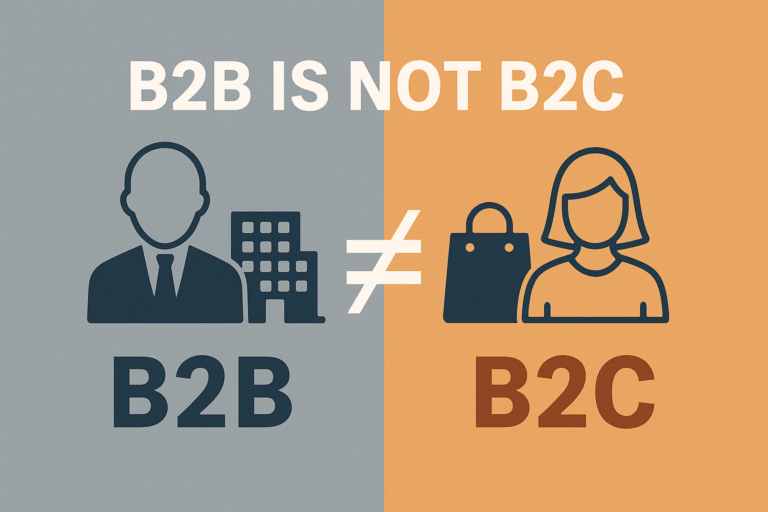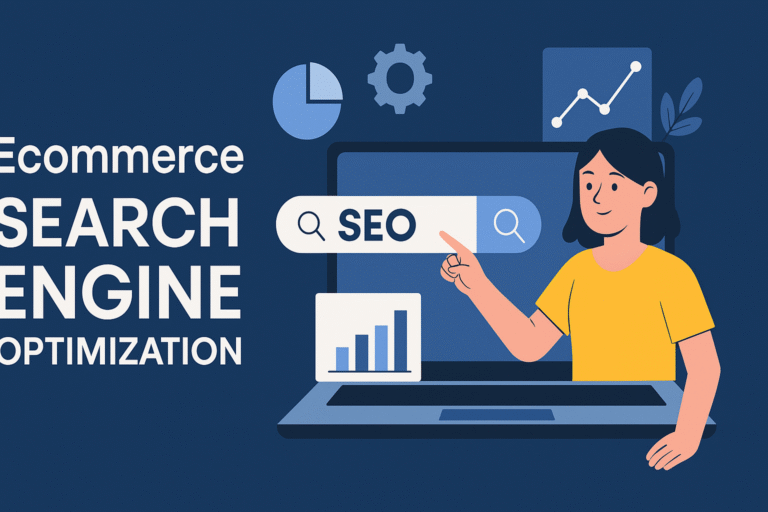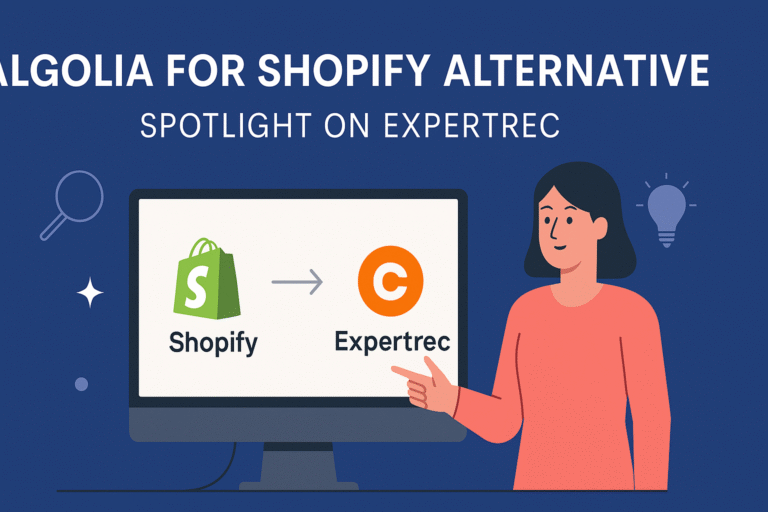In the digital ecosystem, it’s easy to assume that what works for a B2C audience will naturally work for B2B. After all, both users search for products, compare options, and expect intuitive user interfaces. However, this assumption leads to a critical oversight—B2B is not B2C.
From customer journeys and decision-making cycles to data complexity and personalization needs, B2B buying behavior demands a fundamentally different approach to search, discovery, and content delivery.
In this blog, we’ll explore why B2B needs specialized digital experiences, what goes wrong when B2C solutions are forced into B2B contexts, and how platforms like Expertrec solve this with enterprise-ready, AI-powered search infrastructure.
The B2B vs B2C Divide in Search and UX
1. Buyer Personas and Intent Complexity
- B2C: Typically, a single user makes a fast decision based on price, reviews, and design.
- B2B: Multiple stakeholders (procurement, engineering, finance) are involved. Intent varies across each stage—initial research, compliance checking, bulk pricing requests, etc.
This requires intelligent search systems that can identify user roles and tailor results accordingly.
2. Product Complexity and Metadata Depth
- B2C catalogs are generally flat: sizes, colors, brands.
- B2B catalogs include technical specs, certifications, compatibility data, installation instructions, and more.
An effective B2B search engine must leverage structured metadata, filters, and attribute-based search, along with full-text retrieval across datasheets and manuals.
3. Search Query Variance and Semantic Understanding
B2B queries are often long-tail, specific, and technical (e.g., “DIN-compliant hydraulic valves for high-pressure pumps”), while B2C queries are often short and keyword-based (e.g., “black sneakers”).
This difference demands semantic search capabilities and vector-based matching powered by AI.
4. Custom Pricing, Access Control, and Personalization
In B2B environments:
- Prices vary based on contracts.
- Product availability may depend on region or partner agreements.
- Certain data may be restricted based on user roles.
B2B search engines need role-based access, personalized content, and real-time pricing integration, which are rarely required in B2C systems.
5. Longer Sales Cycles and Multi-Touch Attribution
B2C purchases often happen in a single session. B2B deals can span weeks or months.
A B2B search engine must support:
- Saved search queries
- Product comparison tools
- Behavioral re-targeting
- Context-aware search history
This creates continuity and relevance across the buying journey.
Is It Worth Investing in B2B-Specific Search Infrastructure?
Absolutely. Treating B2B search like B2C leads to poor UX, lost leads, and customer frustration. A tailored approach yields:
- Higher lead quality and conversions through intent-matched results
- Reduced support overhead by surfacing accurate technical documentation
- Better stakeholder alignment via custom role-based content and permissions
- Increased customer retention through personalized portals and search tools
Alternatives?
Some B2B businesses try adapting traditional eCommerce platforms or open-source tools like Solr or Elasticsearch. While these offer flexibility, they also require:
- Deep technical expertise for search tuning
- Custom security model implementations
- Ongoing maintenance and infrastructure costs
Others opt for off-the-shelf B2C-focused SaaS tools, which often lack the granular control and metadata flexibilityB2B requires.
A better alternative is a platform that understands B2B complexity from the ground up.
Why Expertrec Is the Ideal Search Platform for B2B Businesses
Expertrec offers an AI-powered, metadata-rich search and discovery solution tailored for B2B enterprise needs.
Key Advantages:
1. Advanced Faceted and Attribute-Based Search
Support for complex filters, taxonomy hierarchies, and search facets enables technical buyers to find exactly what they need—fast.
2. Semantic and Vector Search Capabilities
Expertrec leverages AI-based embedding models that understand domain-specific language, technical phrases, and synonyms—perfect for long-tail B2B queries.
3. Custom Role-Based Access Control (RBAC)
Show different catalogs, prices, or documents to different user roles: resellers, OEM partners, or enterprise clients.
4. Personalized Dashboards and Recommendations
Offer personalized product listings, saved search history, and reorder suggestions—driven by AI behavior analysis.
5. Quick Integration with B2B Portals and ERPs
Easily integrate Expertrec with your ERP, PIM, or customer portals through REST APIs and plugins.
6. Low-Code Deployment and No DevOps Overhead
Unlike Solr or Elastic, there’s no need to manage servers or search infrastructure. Expertrec handles scaling, indexing, and security.
Conclusion: B2B Needs Its Own Playbook—Starting with Search
The difference between B2B and B2C is not just semantic—it’s structural, behavioral, and technical. Businesses that attempt to repurpose B2C platforms for B2B search end up with poor engagement, frustrated buyers, and inefficiencies.
Expertrec offers a better path—a search engine tailored to the complexity of B2B catalogs, buying journeys, and data governance.
From semantic understanding to role-based personalization and easy integration, Expertrec helps B2B companies create a search experience that converts.
FAQs on B2B vs B2C Search Experience
B2C tools lack support for complex metadata, role-based access, and contract-specific pricing models—key requirements in B2B commerce.
2. What makes B2B search queries different?
They are longer, more technical, and context-specific. AI-based vector search can help interpret such queries better.
3. Can Expertrec handle product documentation and manuals?
Yes. Expertrec indexes PDFs, datasheets, and long-form content, making it searchable via semantic matching and keyword relevance.
4. Does Expertrec integrate with SAP, Salesforce, or other ERPs?
Expertrec offers API-based integration with popular ERPs, CRMs, and PIMs, enabling real-time sync of catalog and pricing data.
5. How does Expertrec personalize B2B search experiences?
It tailors results based on user roles, past interactions, industry vertical, and even geolocation or reseller tier.
6. What about security and data privacy?
Expertrec provides enterprise-grade encryption, private deployment options, and role-based content gating to ensure data protection.



